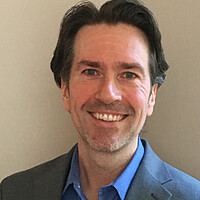National Honesty Day: This story is an attempt to get Web traffic
April 30 marks National Honesty Day. We spotted the phrase "National Honesty Day" as a trending term on Yahoo! and thought that we might share some of its history in the hopes that Yahoo! visitors would click on the phrase, and then click on the link to our story.
If you're reading this, our ploy apparently worked, and you've just helped us get a little bit of advertising revenue.
National Honesty Day – we're gong to repeat this phrase as often as we can in an attempt to increase this story's ranking on search engines – is the brainchild of M. Hirsh Goldberg, former press secretary to a governor of Maryland and author of the 1990 book, "The Book of Lies: Schemes, Scams, Fakes, and Frauds That Have Changed the Course of History and Affect Our Daily Lives," which, in all honesty, we haven't actually read.
Goldberg chose the last day of April for National Honesty Day because the first day of April – April Fools' Day – celebrates falsehoods. Researching his book, he estimated that the average person lies some 200 times a day, including white lies and lies of omission. We got this information from a story in the Richmond Times Dispatch, because doing so was easier and less time consuming than trying to track down Goldberg for an interview.
Other estimates about the pervasiveness of lying offer a much lower figure. A poll of 3,000 Britons conducted last year by London's Science Museum found that the average British man tells three lies each day, and the average woman lies about twice a day. The most common lie for men is "I didn't have that much to drink." For women, it's "Nothing's wrong, I'm fine." According to the survey, people are most likely to lie to their mothers.
Of course, statistics, even accurate ones, can deceive. A 2010 analysis of surveys of lying in America noted that 60 percent of Americans report telling no lies at all in the past 24 hours, and that almost half of all lies are told by only 5 percent of subjects. "[Most] reported lies, concluded the study, are told by a few prolific liars."
On the opposite end of the spectrum from prolific liars are those who embrace the philosophy of Radical Honesty. Developed by psychologist Brad Blanton, Radical Honesty calls for completely eliminating any filter that may exist between the mind and the organs of speech. Here is a sample from the Radical Honesty website's FAQ:
Q: Suppose you met someone whom you found unattractive. How do you handle that?
A: If the person’s outstandingly ugly, then that’s an issue I’m certainly going to bring up to talk about right off. I would say, “I think you look kind of ugly and this is what I think is ugly. I think that big wart on the left side of your face is probably something that puts people off and that you don’t have much of a love life, is that true?” Then we’ll have a conversation about it. That ugly person has probably always felt the negative unexpressed reaction from people. The idea is that they end up not avoiding the damn thing instead of living a life that’s dancing on egg shells. They live life out loud and it’s a whole lot better life.
In 2004 and 2006, Blanton ran for US Congress in Virginia. He was not elected.
If he had been, Blanton may not have enjoyed the company. A 2011 Gallup poll asked respondents to rate the honesty of people in 21 professions. Members of Congress scored dead last, below lobbyists, car salesmen, and telemarketers. Ranking at the top of the list were nurses.
Journalists scored about halfway down the list, just below building contractors and above bankers. (Oddly enough, pollsters were not on the list.)
National Honesty Day ends at midnight, at which point we can all go back to saying that "the check is in the mail," "we're on our way but stuck in traffic," and "that shirt looks great on you."






